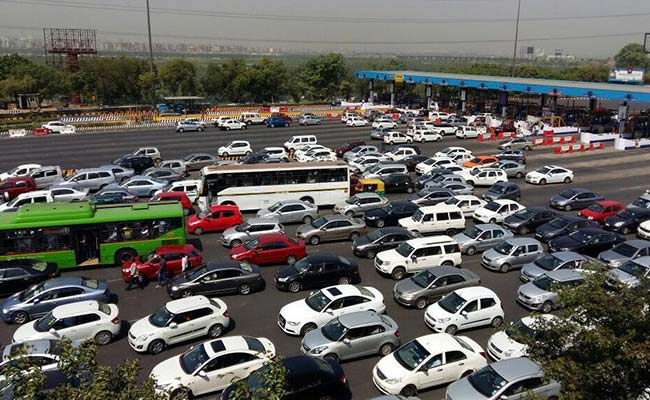
Transport Minister Nitin Gadkari said the government will ask the Supreme Court to reconsider a ban on diesel cabs in Delhi.
Quick Take
Summary is AI generated, newsroom reviewed.
Cab drivers protest against top court ban on diesel taxis
30,000 cabs off roads; Transport Minister says will ask to reconsider ban
'Why go after commercial vehicles only?', asked taxi drivers
On Saturday, judges refused industry requests for more time to switch from diesel to greener compressed natural gas (CNG).
Many of Delhi's taxis already run on CNG, but the ban applies to 30,000 traditional cabs and some working for app-based Uber and Ola services.
Mr Gadkari said that the government will ask the court to consider the huge problems confronting commuters as well as the exercises it has already undertaken to check pollution.
The Supreme Court has been pressuring authorities to reduce dangerous levels of haze and dust that choke the city, with a string of orders last year including a ban on new, large diesel cars, mainly SUVs.
Angry taxi drivers blocked key intersections in Delhi and the satellite city of Gurgaon on Monday morning, bringing peak-hour traffic to a standstill for hours.

"You can't have knee-jerk solutions to long-standing problems," Balwant Singh, who heads a taxi union of 500 members, said at a noisy demonstration in central Delhi.
"Why go after commercial passenger vehicles only? Private diesel cars are running freely on the roads, why not stop them?"
Some drivers said they knew of no available technology to switch from diesel to CNG and would instead be forced to buy new taxis.
"I sold my house to buy the taxi and now I will have to sit at home and twiddle my thumbs. How will my family of five survive you tell me," said driver Tarun Kumar.
A 2014 World Health Organisation survey of more than 1,600 cities ranked Delhi as the most polluted, partly because of the nearly 10 million vehicles on its roads.
The ban by the court, which was acting on a petition, came just days after the end of another two weeks of "odd-even" that kept about one million cars off Delhi's roads.
But Delhi-based research institute TERI said its analysis found the measures had not significantly reduced concentrations of PM 10 and PM 2.5 during the first week.
These fine particles measuring less than 2.5 micrometres are linked to higher rates of chronic bronchitis, lung cancer and heart disease.
Track Latest News Live on NDTV.com and get news updates from India and around the world

